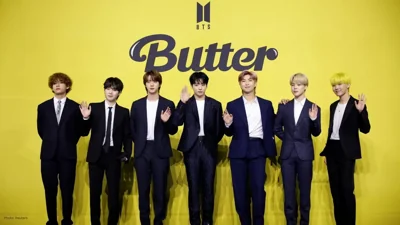
Post by :
Photo:Reuters
Two former safety researchers have come forward with serious claims against one of the world’s biggest social media companies. They told a United States Senate committee that the tech giant tried to hide evidence about how its virtual reality (VR) products may harm children.
The hearing took place after reports suggested that company lawyers shaped research findings to avoid showing risks linked to VR use among young people. The company, which owns some of the most widely used apps and VR headsets, denied the claims, calling them false and misleading.
Researchers Speak Out
Jason Sattizahn and Cayce Savage, who both worked on youth safety research for the company’s VR platforms, said that management pressured them to delete or avoid research that could show harmful effects on children.
Sattizahn, who worked there for six years, told senators that the company’s response to the allegations was a “lie by avoidance.” He explained that while the company points to the number of safety studies it approved, many of these studies were carefully selected and did not cover the most concerning issues. According to him, the research process was “pruned and manipulated” to protect the company’s image.
Alarming Allegations on VR Apps
Cayce Savage shared shocking details of her research. She claimed she found evidence that Roblox, a popular online game often used by children, was being misused by coordinated groups of predators inside VR. According to her, these groups created virtual strip clubs and paid children with “Robux,” the in-game money that can be exchanged for real currency.
She said she warned company leaders, telling them Roblox should not be allowed on VR headsets. Despite this warning, Roblox is still available in the VR store.
In response, Roblox strongly denied the claims, saying the information was outdated and misleading. They stressed that child safety is their top priority, explaining they have a 24/7 moderation system to remove harmful content and report bad actors to the authorities.
Concerns Over Parental Controls
During the same hearing, some US senators raised concerns about how difficult it is for parents to use the parental control features on the company’s VR headsets. One senator, who had sued the company for harming children online, admitted she could not figure out how to activate these controls without asking her own child for help.
Both whistleblowers responded that they were not surprised, suggesting the parental control tools are not user-friendly and may not provide strong protection for children.
A Pattern of Whistleblowers
These are not the first former employees to raise alarms about the company’s approach to child safety. In 2021, another former staff member, Frances Haugen, leaked thousands of documents showing that the company knew Instagram was harming the mental health of teenagers but failed to take strong action.
At that time, the company’s CEO denied the accusations, saying profits were not being put ahead of user safety. But lawmakers have continued to press him on the issue, accusing the company of spreading harmful content to young people.
In a Senate hearing last year, he even apologized to families who said their children had been harmed by the company’s platforms, telling them he was sorry for everything they had gone through.
Company’s Response
In this latest case, the company rejected the whistleblowers’ accusations. A spokesperson said there were no bans on research and that nearly 180 studies had been approved in recent years on issues such as youth well-being and safety in VR. They argued that the allegations are based on “selectively leaked documents” chosen to build a false story against them.
However, the two former employees insist that the truth is being hidden. They argue that instead of fixing safety problems, the company has focused on controlling how research is presented to protect its public image.
Why This Matters
The case has sparked strong debate in the US and beyond about how big tech companies handle child safety in the fast-growing world of virtual reality. With children spending more time in VR games and social platforms, lawmakers are worried about risks such as online predators, harmful content, and weak parental protections.
The whistleblowers’ testimonies may put pressure on the company to make changes, but they also raise larger questions about whether technology firms can be trusted to protect children without stronger outside regulation.










Mattel Revives Masters of the Universe Action Figures Ahead of Film Launch
Mattel is reintroducing Masters of the Universe figures in line with its upcoming film, tapping into

China Executes 11 Members of Criminal Clan Linked to Myanmar Scam
China has executed 11 criminals associated with the Ming family, known for major scams and human tra

US Issues Alarm to Iran as Military Forces Deploy in Gulf Region
With a significant military presence in the Gulf, Trump urges Iran to negotiate a nuclear deal or fa

Copper Prices Reach Unprecedented Highs Amid Geopolitical Turmoil
Copper prices soar to all-time highs as geopolitical tensions and a weakening dollar boost investor

New Zealand Secures First Win Against India, Triumph by 50 Runs
New Zealand won the 4th T20I against India by 50 runs in Vizag. Despite Dube's impressive 65, India

BTS Tour Sparks Global Demand: Mexico Appeals for Additional Shows
BTS' comeback tour creates immense demand in Mexico, prompting President Sheinbaum to urge more conc